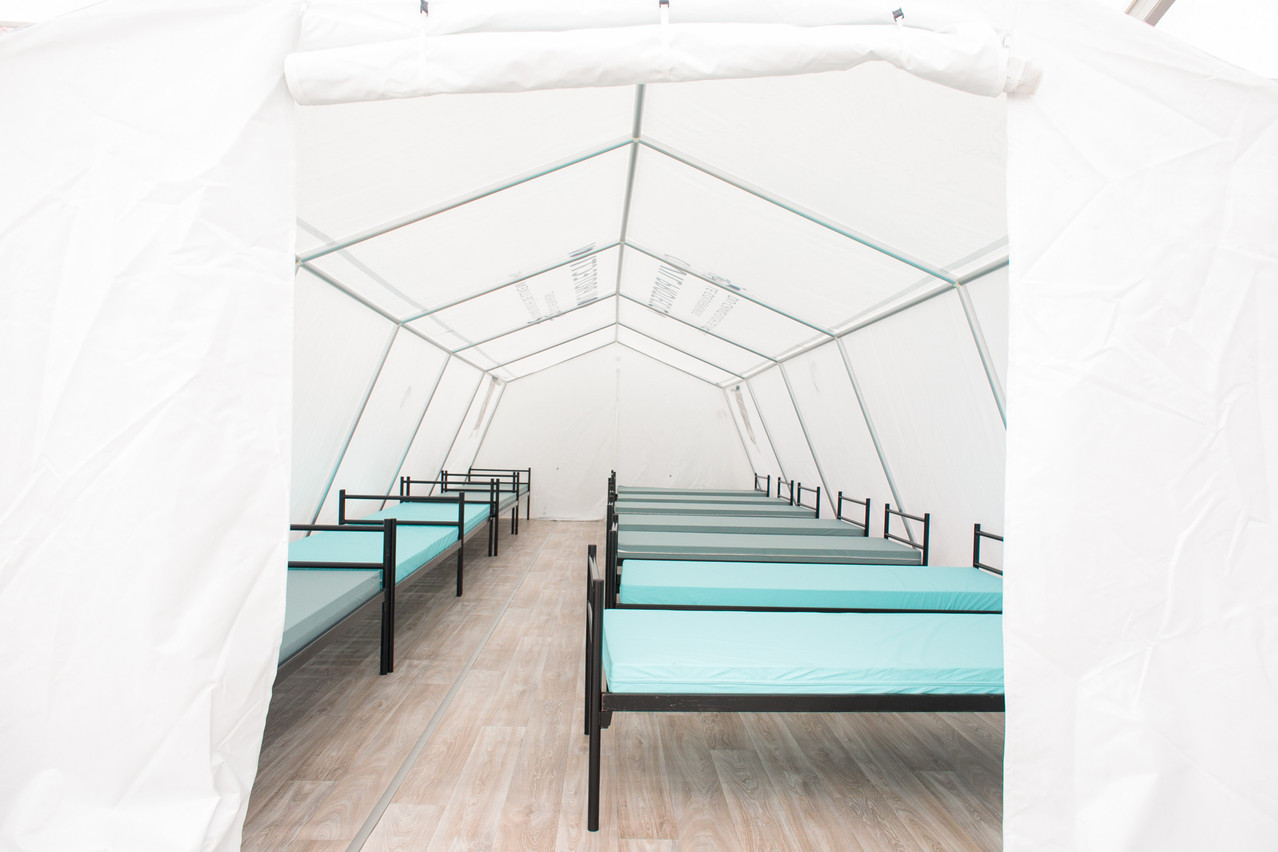This weekend, the several hundred people fleeing the war in Ukraine who were accommodated in Hall 7 of Luxexpo will be relocated due to the need to free up space for the International Dog Show on 16 and 17 April. The refugees will be moved to tents in front of the European Parliament in Kirchberg which were built by the CGDIS.
This triggered the indignation of many people reacting to the news including Pirate Party MP Sven Clement:
“No surprise”
The CEO of Luxexpo The Box, Morgan Gromy, was keen to clarify the situation in a statement issued on 14 April. A contract concluded on 15 March provided, at the request of the government, for the emergency accommodation of refugees in the Luxexpo hall “pending a more suitable solution”, “”.
“Unsurprisingly, and in accordance with the agreements that were made, the site was vacated on the agreed date,” added Gromy.
Such a situation is disturbing and can be upsetting. However, one should not lose sight of the exceptional nature of the refugee crisis in which Europe, and consequently Luxembourg, has found itself since the start of the war in Ukraine. In total, more than 4.7 million Ukrainian refugees have fled the country since the Russian invasion on 24 February according to figures by the United Nations High Commissioner for Refugees. In Luxembourg, as of 13 April, 4,654 people had applied for temporary protection and 1,845 applications were approved.
A sudden influx
In comparison, 1,250 people had applied for international protection in Luxembourg over the whole of 2021. The influx is “sudden, rapid and on an unprecedented scale”, said the Luxembourg Red Cross, which registered a greater volume of demands in a single month than over an entire year.
“There were already reception centres for refugees, but they were full, so others had to be set up,” stated the Red Cross.
Caritas, which, together with the Red Cross, manages the socio-educational and psychological follow-up of refugees, had about fifteen accommodations with about 1,500 beds. The association had to make available an additional 1,000 beds in just 10 days.
First reception
Luxexpo's Hall 6, which can accommodate 200 people, is dedicated to the Kirchberg emergency accommodation structure (Shuk), which manages the first reception of people fleeing the war in Ukraine and arriving in Luxembourg. “This centre offers shelter for the first few days, meals, as well as basic necessities to people wishing to apply for temporary protection in Luxembourg, but also for those wishing to join another European country. After the first few days, these people will be directed to other governmental structures,” explained the foreign affairs ministry.
Hall 7 was set up as a matter of urgency to extend the capacity of the first reception centre. This was done temporarily, until the refugees were moved to the new tents on the Tony Rollman site, which, according to foreign affairs minister, Jean Asselborn (LSAP), is more “pleasant” and more “flexible”.
Stabilisation
“In such a crisis, with the volumes we are experiencing, we can no longer make do with the normal structures,” stated the Red Cross. Relocation from temporary structures to permanent ones unfortunately seem inevitable. “It's moving around a lot, it's happening very quickly,” said the Red Cross.
“All this did not exist a few months ago, it's quite an effort that a lot of people are making,” said Caritas operational director Tom Brassel. “Everyone has been mobilised, but we cannot get ahead of ourselves.” However, the situation now seems to be improving, says Brassel: “It was complicated, but now it is stabilising a bit.”
As of Friday, 15 April, according to the foreign affairs ministry, the UN has 19 operational accommodation structures for people fleeing the war in Ukraine which can lodge up to 2,000 people.
This story was first published in French on . It has been translated and edited for Delano.
